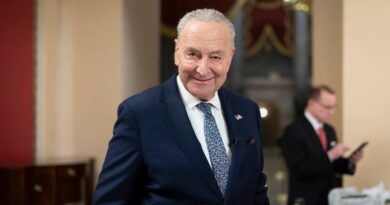Why Ukraine Faces a Difficult Situation with the White House Peace Proposal

President Donald Trump is instructing Volodymyr Zelensky to agree to conditions he simply cannot accept, based on the reported stipulations of the recent “peace” proposal regarding the Ukraine conflict that the White House has presented.
For starters, the plan would require Ukraine to acknowledge Russia’s control over Crimea, which was annexed by Moscow over ten years ago.
Zelensky has persistently refused to make such a concession.
It’s no surprise that discussions wrapped up on Wednesday without any advancement.
This would represent a significant strategic defeat for his country — as well as for Europe and the United States, potentially setting the stage for further Russian aggression.
Such a move could also ignite a civil war within Ukraine.
Moreover, Zelensky lacks the authority to consent to such compromises, as it would conflict with Ukraine’s constitution.
Trump is also insisting that the Ukrainian leader agree to stabilize current front lines, essentially relinquishing control of territories in Luhansk, Donetsk, and other areas to Russia, as well as abandoning any intentions of NATO membership in exchange for “strong security guarantees.”
(It’s worth noting that the assurances offered to Ukrainians in 1994 for giving up nuclear arms didn’t seem particularly effective.)
In summary, Trump is asking Zelensky to undertake substantial national-security sacrifices while forgoing aspirations for a more viable treaty and concrete security arrangements that could justify such concessions and enable him to sell the deal to the Ukrainian populace.
Conversely, Russia is required to yield very little: merely withdrawing from Kharkiv and allowing free navigation on the Dnieper River.
At the same time, Trump’s team is threatening to disengage entirely if this agreement does not materialize — with the president himself taking to social media to criticize Zelensky’s stance.
America cannot simply step back and let this conflict unfold without facing the repercussions of the outcome.
Trump cannot solely attribute the war to Joe Biden and disassociate himself from the consequences during his tenure.
Ironically, that’s what Biden attempted to do following his misguided withdrawal from Afghanistan: shift the blame onto Trump for initiating the troop pullout during his initial term.
The unnecessary loss of lives during that pullout and the territory surrendered to the Taliban was entirely Biden’s responsibility.
The same can be said for Trump if he neglects Ukraine.
Furthermore, the stakes here are considerably higher.
While it’s true that Russia seems to hold the stronger position, Trump is justified in wanting to establish a cease-fire promptly.
However, achieving that requires Ukraine to make some concessions, particularly if Trump is unwilling to change his stance, fully back Kyiv, and significantly increase U.S. aid.
Even in that case, it remains uncertain whether Ukraine can push back against the Russians.
The issue of Crimea is nearly impossible to resolve.
Nonetheless, let it be clear: Vladimir Putin initiated this war and bears full responsibility for it.
He’s the antagonist and deserves punishment, not incentives.
If “realism” necessitates some concessions, they should be minimized and crafted to ensure he won’t (or can’t) reignite violent conflict in the future.
Sadly, the White House has effectively positioned itself as a legitimizer of Putin’s expansionist ambitions.
To make matters worse, it seems to be under the illusion that its current proposal can foster a lasting peace — even if it were to be enacted in its present form, which is highly unlikely.
The urgency of this initiative, along with the public disapproval directed at Zelensky and Steven Witkoff’s mission to Moscow, all indicate that the White House is hurrying to fulfill a campaign promise before reaching the 100-day milestone — and it risks turning out to be a failure.
This outcome would have ramifications for Ukraine, Europe, the Russians, Americans, and yes, even Trump’s own reputation.



